
A Serene Escape to Lake District National Park
Discover the tranquil beauty and rich heritage of Lake District National Park, England's premier destination for nature lovers and adventure seekers.
Lake District National Park, located in the heart of Cumbria in the United Kingdom, is a treasure trove of natural beauty and tranquil landscapes. Known for its stunning lakes, rolling hills, and charming villages, this destination offers a perfect blend of relaxation and adventure. Whether you're an avid hiker, a history buff, or simply looking to unwind, the Lake District has something to offer everyone. The park is home to England's largest lake, Windermere, and the highest peak, Scafell Pike. Visitors can enjoy a variety of water activities, from rowing and kayaking to leisurely cruises that offer breathtaking views of the surrounding scenery. The numerous walking and hiking trails cater to all levels of fitness, providing ample opportunities to explore the park's diverse flora and fauna. In addition to its natural wonders, the Lake District is steeped in cultural heritage. It has inspired many famous writers, including William Wordsworth and Beatrix Potter. You can visit their former homes and museums dedicated to their lives and works. The picturesque villages, with their stone cottages and cozy tea rooms, offer a glimpse into traditional English life. The Lake District is also renowned for its culinary delights. Local pubs and restaurants serve up delicious Cumbrian fare, including traditional dishes like Cumberland sausage and sticky toffee pudding. A visit to this national park is not just a feast for the eyes but also for the palate.
Local tips in Lake District National Park
- Visit during spring or autumn for fewer crowds and vibrant natural colors.
- Wear sturdy walking shoes for exploring the trails.
- Check the weather forecast before heading out, as conditions can change rapidly.
- Try local specialties like Cumberland sausage and Grasmere gingerbread.
- Book boat trips in advance during peak seasons to avoid disappointment.
A Serene Escape to Lake District National Park
Lake District National Park, located in the heart of Cumbria in the United Kingdom, is a treasure trove of natural beauty and tranquil landscapes. Known for its stunning lakes, rolling hills, and charming villages, this destination offers a perfect blend of relaxation and adventure. Whether you're an avid hiker, a history buff, or simply looking to unwind, the Lake District has something to offer everyone. The park is home to England's largest lake, Windermere, and the highest peak, Scafell Pike. Visitors can enjoy a variety of water activities, from rowing and kayaking to leisurely cruises that offer breathtaking views of the surrounding scenery. The numerous walking and hiking trails cater to all levels of fitness, providing ample opportunities to explore the park's diverse flora and fauna. In addition to its natural wonders, the Lake District is steeped in cultural heritage. It has inspired many famous writers, including William Wordsworth and Beatrix Potter. You can visit their former homes and museums dedicated to their lives and works. The picturesque villages, with their stone cottages and cozy tea rooms, offer a glimpse into traditional English life. The Lake District is also renowned for its culinary delights. Local pubs and restaurants serve up delicious Cumbrian fare, including traditional dishes like Cumberland sausage and sticky toffee pudding. A visit to this national park is not just a feast for the eyes but also for the palate.
When is the best time to go to Lake District National Park?
Iconic landmarks you can’t miss
Scafell Pike
England's highest peak: a challenging mountain adventure with war memorial significance and spectacular Lake District views.
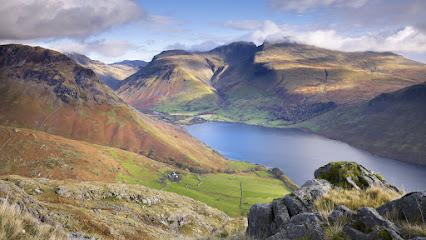
Ambleside Roman Fort
Explore the atmospheric ruins of Ambleside Roman Fort, a strategic Roman supply base nestled beside Lake Windermere in the heart of the Lake District.
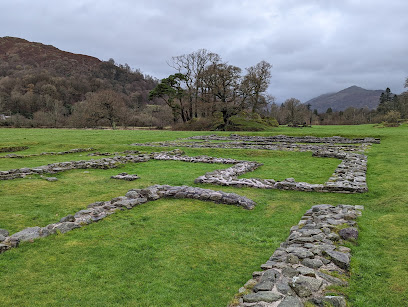
Hare Hill - Hadrian's Wall
Explore Hare Hill, Cumbria’s tallest surviving stretch of Hadrian's Wall, where Roman history stands proudly amidst tranquil countryside.
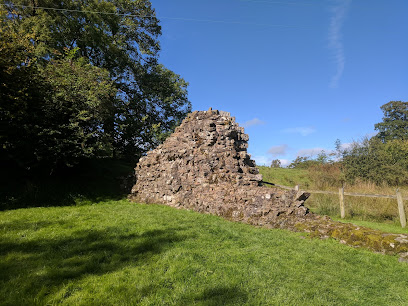
Windermere and Troutbeck
Historic Lakeland stone cottage with expansive gardens and stunning fells views, nestled at the foot of Troutbeck Valley near Windermere village.
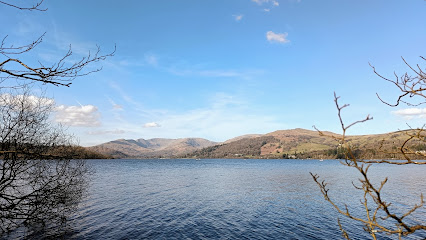
Keswick War Memorial
A dignified neoclassical monument honoring Keswick’s fallen heroes, set amidst the tranquil beauty of the Lake District.
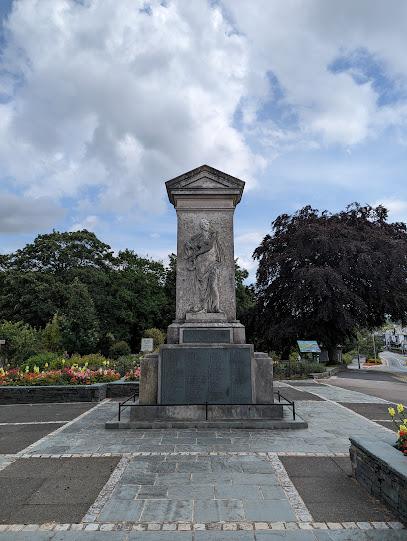
Unmissable attractions to see
Lake District National Park
Explore England’s largest national park, where majestic mountains, tranquil lakes, and rich literary heritage create an unforgettable natural and cultural journey.
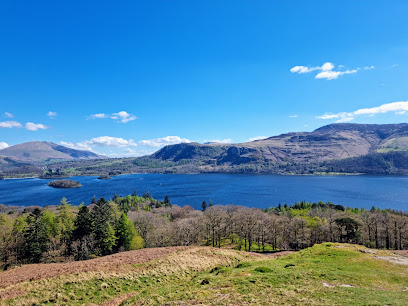
Aira Force Waterfall
Discover the breathtaking 65-foot Aira Force waterfall and ancient woodlands of Gowbarrow Park, a timeless Lake District treasure.
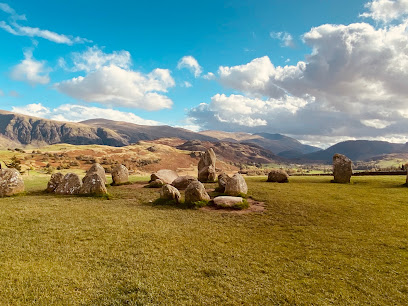
Lancaster Castle
Explore Lancaster Castle’s rich history through immersive guided tours of its medieval walls, courtrooms, and prison cells atop Castle Hill.
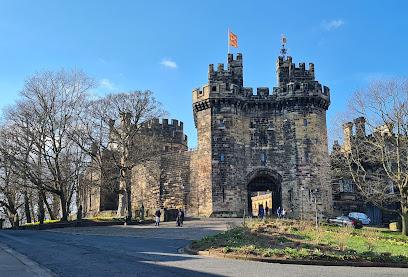
Castlerigg Stone Circle
Explore one of Britain’s oldest and most atmospheric stone circles, set amid stunning Lake District panoramas with a rich Neolithic heritage.
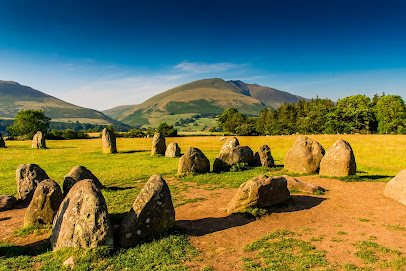
National Trust - Wray
Explore the enchanting Victorian Gothic Revival Wray Castle and its scenic grounds on Lake Windermere’s shores.
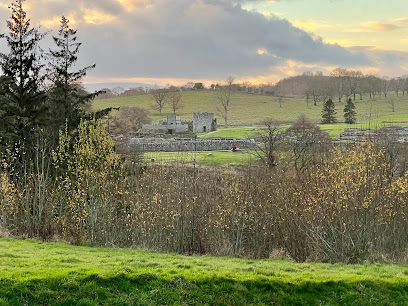
National Trust - Sizergh
Explore centuries of history, exquisite Elizabethan interiors, and tranquil gardens at Sizergh Castle, the National Trust gem near Kendal.
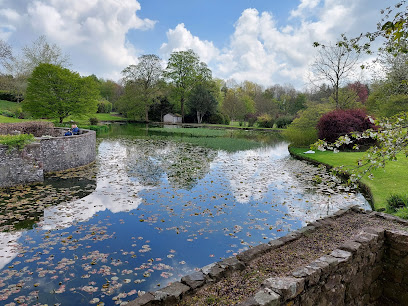
Brockhole on Windermere
Explore 30 acres of lakeside gardens, thrilling activities, and family fun at Brockhole, the Lake District’s flagship visitor centre on Windermere.
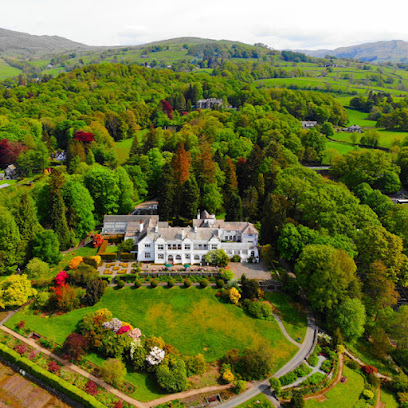
Grizedale
Explore Grizedale Forest’s stunning trails, outdoor sculptures, and adventure activities in the heart of England’s Lake District.
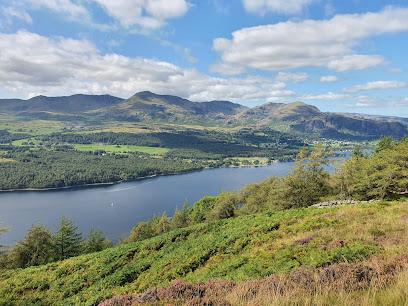
Derwent Pencil Museum
Explore the birthplace of the pencil in Keswick, where history, art, and innovation meet in the unique Derwent Pencil Museum.
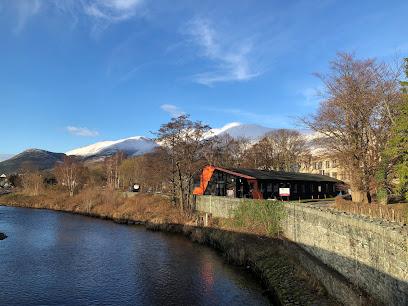
National Trust - Fell Foot
Discover lakeside calm, family fun, and historic charm at Fell Foot, Windermere’s welcoming National Trust park.
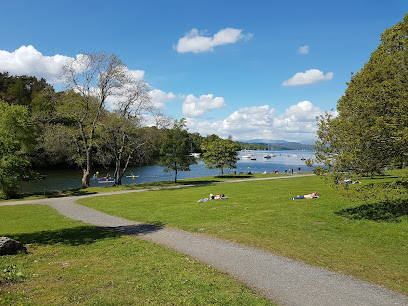
Surprise View
Experience stunning Lake District panoramas at Surprise View, a tranquil and accessible viewpoint overlooking Derwent Water and Skiddaw.
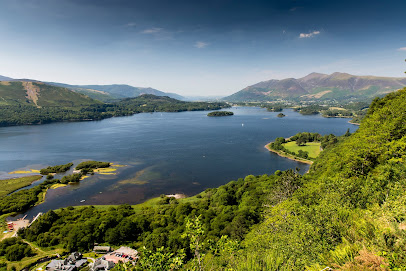
Lake District Wildlife Park
Explore over 100 species in 24 acres of scenic parkland with thrilling bird displays and interactive animal experiences near Keswick.
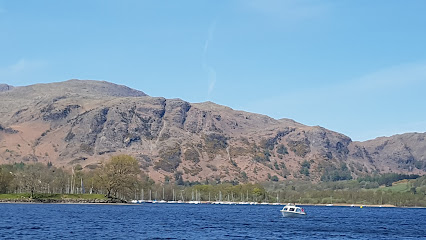
Rydal Cave
Explore the atmospheric man-made Rydal Cave, a historic slate quarry nestled beside tranquil Rydal Water in the scenic English Lake District.
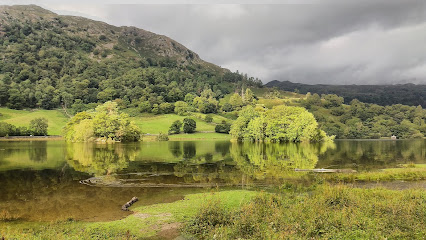
National Trust - Hill Top
Step into Beatrix Potter’s world at her Lake District farmhouse, where her beloved tales came to life among stone walls, a cottage garden, and the rolling hills of the Lake District.
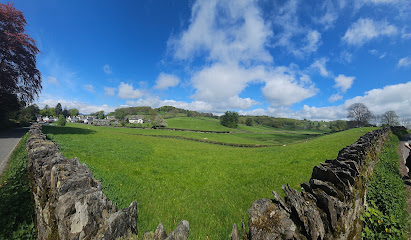
Talkin Tarn Country Park
Explore Talkin Tarn Country Park’s glacial lake, accessible trails, rich wildlife, and family-friendly outdoor activities set against stunning Pennine Hills.
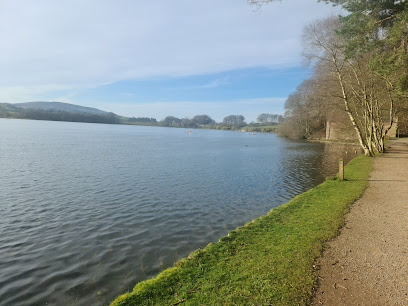
Essential places to dine
The Tilly Bar and Kitchen
Casual British dining and drinks in the heart of Windermere village, featuring fresh homemade dishes and a welcoming dog-friendly atmosphere.
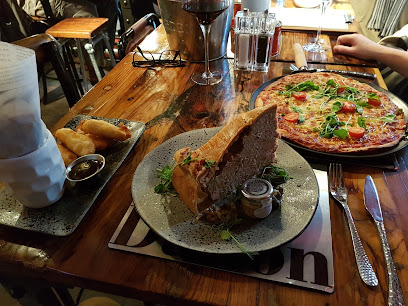
The Magic Roundabout
A vibrant café and bar in Bowness-on-Windermere offering diverse British cuisine, inclusive menus, and a lively atmosphere from morning to late night.
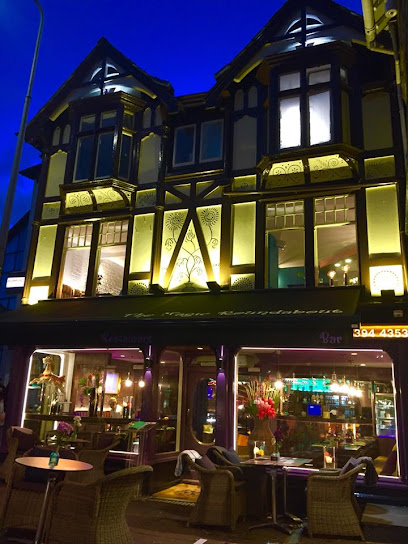
The Inn on the Lake
Elegant lakeside retreat blending Victorian charm with modern comfort on Ullswater’s scenic shores in the Lake District.
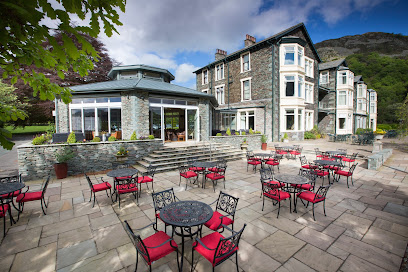
Porto Restaurant
Experience modern British cuisine with locally sourced flavors in a warm, inviting setting just steps from Lake Windermere.
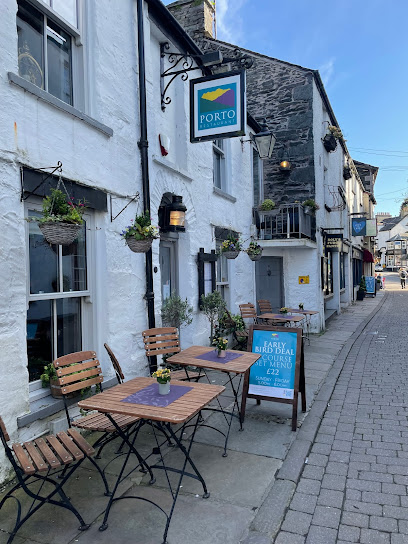
The Priest Hole Restaurant
Historic 16th-century setting serving hearty British and Cumbrian dishes with warm hospitality in the heart of Ambleside.
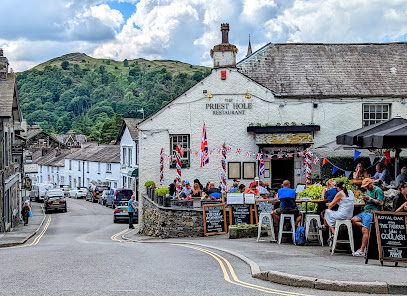
L'Enclume
Experience innovative, farm-to-table British fine dining in a historic Cartmel setting with three Michelin stars and exceptional seasonal cuisine.
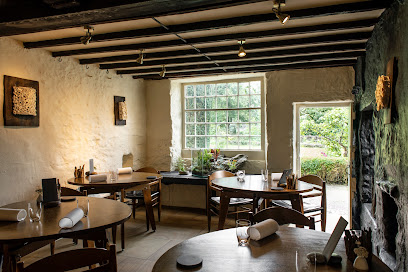
Lucy's on a plate
Eclectic English dining with fresh, creative menus and indulgent puddings in the heart of Ambleside’s charming Lake District.
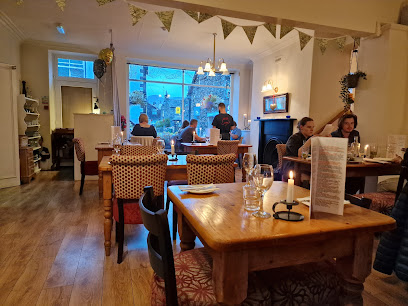
Cockermouth Brewers Fayre
A welcoming family-friendly pub and restaurant in Cockermouth offering classic British dishes, hearty breakfasts, and a spacious beer garden with countryside views.
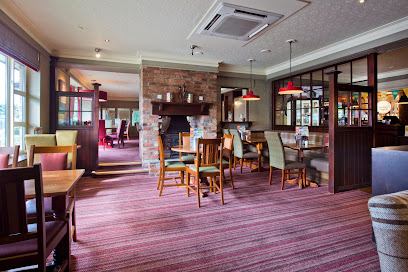
Boardwalk Bar and Grill
Relax by Lake Windermere with delicious grilled dishes and panoramic views at Boardwalk Bar and Grill, Bowness-on-Windermere’s lakeside favorite.
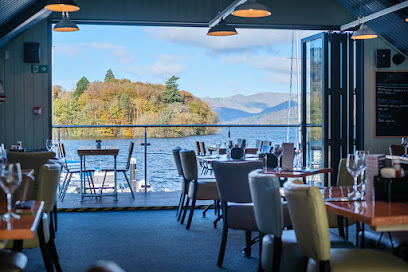
Old Dungeon Ghyll Hotel Great Langdale
A welcoming climbers’ inn with traditional charm, hearty fare, and stunning mountain views in the heart of Great Langdale.
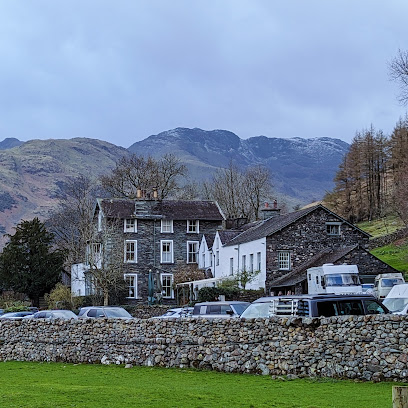
Drunken Duck Inn & Barngates Brewery
Charming countryside inn with on-site brewery, hearty cuisine, and stunning Lake District views near Ambleside.

BAHA Bowness - Bar | Restaurant | Live Music
Experience vibrant Asian BBQ, live music, and nightlife across three lively floors in the heart of Bowness-on-Windermere.
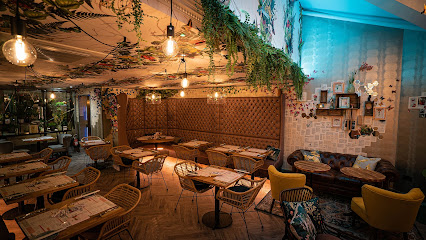
The Brown Horse Inn
A cozy and charming inn near Windermere offering hearty food, comfortable rooms, and a warm Lake District welcome.
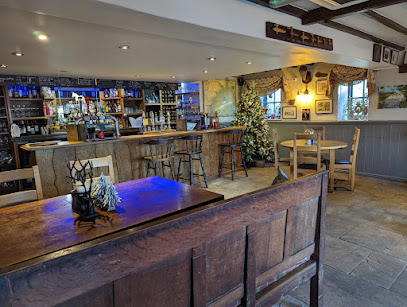
The Punch Bowl Inn, Crosthwaite
Historic 17th-century country inn in Lyth Valley offering acclaimed local cuisine, warm hospitality, and charming countryside stays.
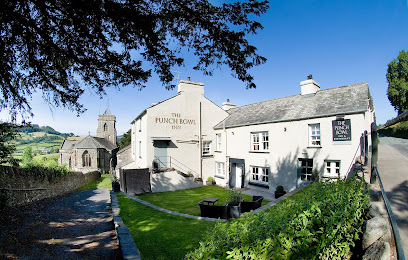
New Dungeon Ghyll - Langdale
Rustic hotel and lively bar nestled in Langdale Valley, perfect for walkers seeking comfort and community in the Lake District.
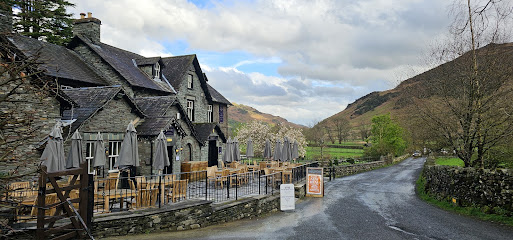
Markets, malls and hidden boutiques
Booths, Keswick
A premium supermarket and café in Keswick, offering local Lake District produce, fresh counters, and community-focused shopping.
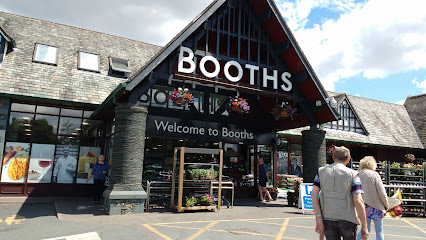
Booths, Windermere
Explore Booths Windermere: a premier supermarket and café blending local flavors, quality produce, and community spirit in a historic setting.
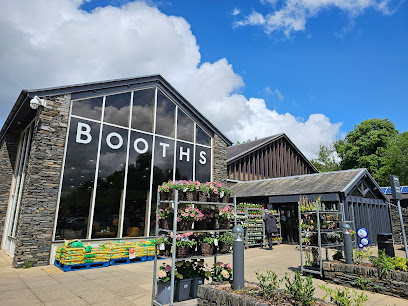
Sainsbury's
Your convenient and comprehensive supermarket destination in Kendal, offering fresh produce, bakery delights, and friendly service daily.
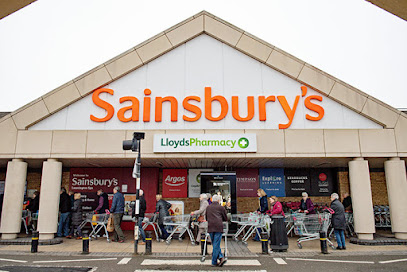
Tesco Express
Your convenient, friendly supermarket stop in Bowness-on-Windermere, open daily with fresh local produce and essentials for every visit.
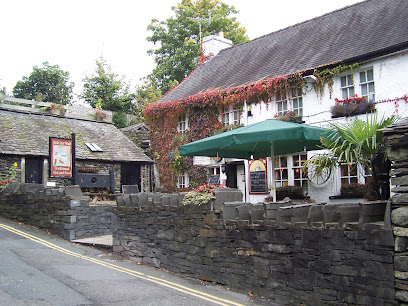
Mountain Warehouse
Your go-to outdoor clothing and equipment store in Bowness, offering quality gear for all your Lake District adventures.
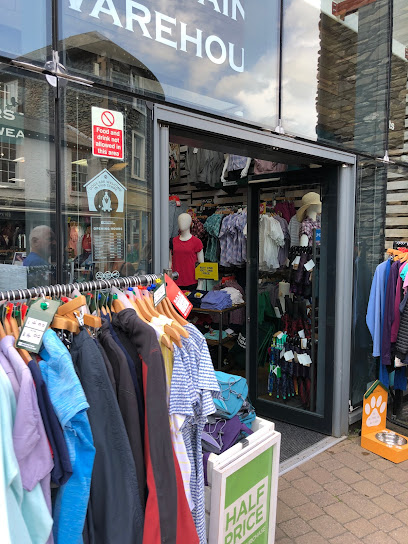
Love the Lakes Bowness
Locally crafted gifts celebrating the spirit and beauty of England's Lake District.
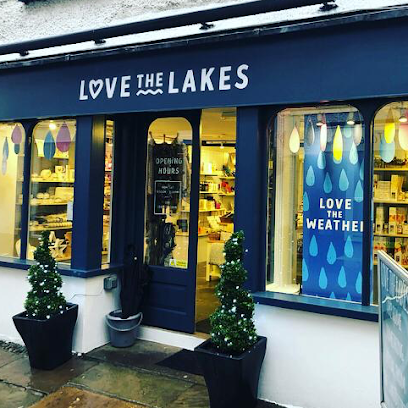
LAKELAND Leather
Discover handcrafted leather elegance and timeless style at Lakeland Leather in Bowness-on-Windermere, where tradition meets the Lake District spirit.
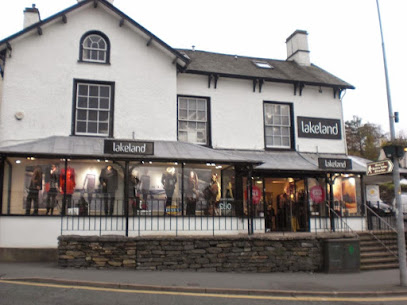
Essential bars & hidden hideouts
Quayside Bowness
Lakeside bar and kitchen with stunning views, live sports, and vibrant nightlife across three lively floors in Bowness-on-Windermere.
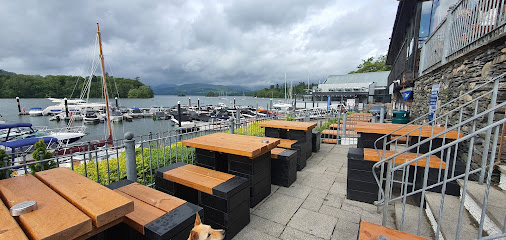
The Albert
A lively, traditional pub in Bowness-on-Windermere offering local ales, hearty food, and a warm, welcoming atmosphere year-round.
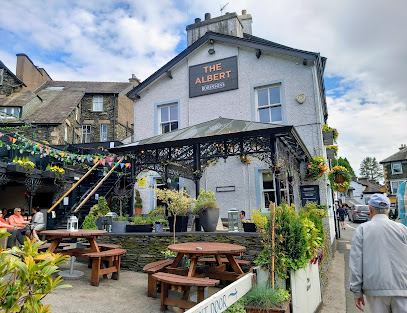
Hole in t' Wall
Historic Lakeland pub offering hearty food, cask ales, and a cozy atmosphere in the heart of Bowness-on-Windermere.
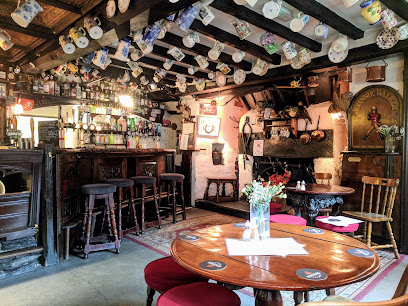
The Crafty Baa Windermere
A vibrant, quirky bar and tapas spot in Windermere, famed for its eclectic décor, craft drinks, and lively, welcoming atmosphere.
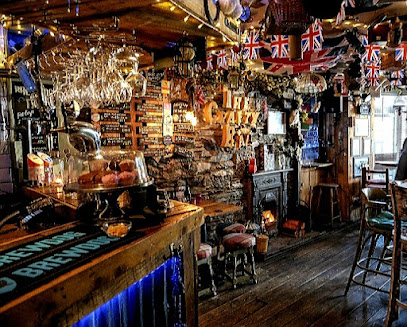
The Flying Pig Pub
Traditional Lakeland pub serving hearty seasonal dishes and famous Cumberland sausage sandwiches in the heart of Bowness-on-Windermere.
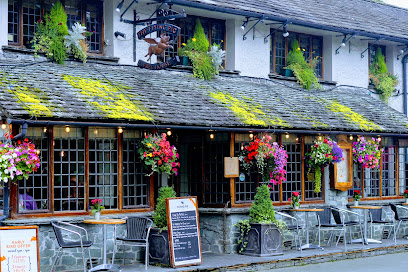
Queens Head, Troutbeck
Historic Lake District pub and inn offering hearty fare, local ales, and cosy rooms with stunning Troutbeck Valley views.
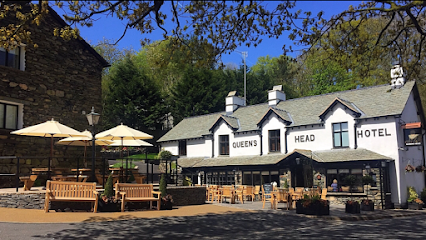
The Tilly Bar and Kitchen
Experience authentic British cuisine and warm hospitality at The Tilly Bar and Kitchen in Windermere, a perfect destination for food lovers and tourists alike.

The Dog Beck
Historic charm meets modern hospitality at The Dog Beck, Penrith’s welcoming Wetherspoon pub open from early morning until late night.
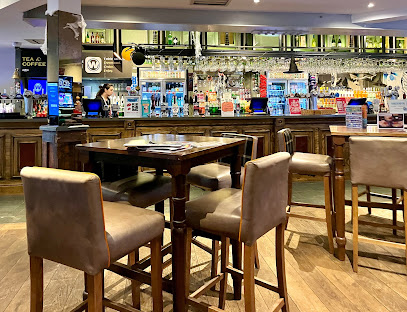
The Magic Roundabout
Experience the charm of The Magic Roundabout, a delightful restaurant in Bowness-on-Windermere offering an array of culinary delights and refreshing beverages.

Village Inn Bowness-On-Windermere
A welcoming traditional pub in Bowness-on-Windermere offering local ales, hearty British fare, live sports, and a spacious beer garden.
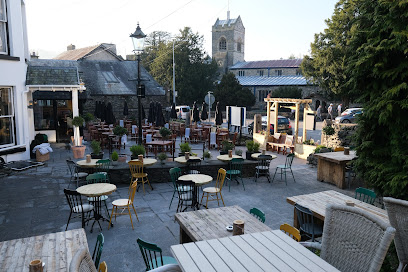
Wainwrights' Inn
A traditional Lakeland pub in Chapel Stile offering hearty local fare, fine ales, and a warm welcome near the Langdale Estate.
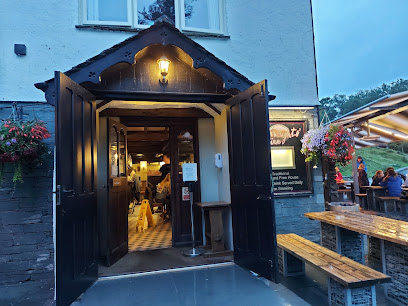
Lake View Garden Bar - Pub | Food | Live Music
Lakeside pub with stunning Windermere views, live music, and a welcoming atmosphere for families and friends.
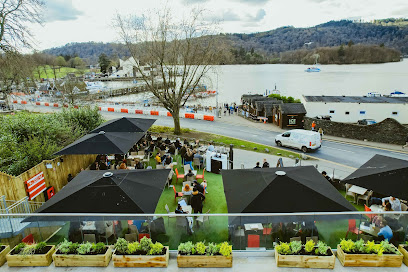
Cockermouth Brewers Fayre
Experience family-friendly dining at Cockermouth Brewers Fayre, featuring hearty British classics and a cozy atmosphere.

Boardwalk Bar and Grill
Experience the best of British grilling with stunning views at Boardwalk Bar and Grill on Windermere's beautiful shores.

Local Phrases about Lake District National Park
-
- HelloAy-up
[ay-up] - GoodbyeTa-ra
[ta-ra] - YesAye
[aye] - NoNah
[nah] - Please/You're welcomePlease - Ta / You're welcome - Nae Bother
[please - ta / you're welcome - nae bother] - Thank youCheers
[cheers] - Excuse me/SorryPardon / Sorry like
[pardon / sorry like] - How are you?How's it gannin?
[how's it gannin?] - Fine. And you?Aye, canny. And you?
[aye, canny. And you?] - Do you speak English?Do you speak English, like?
[do you speak English, like?] - I don't understandDivvent follow ye
[divvent follow ye]
- HelloAy-up
-
- I'd like to see the menu, pleaseCan I hev a deek at the menu, like?
[can I hev a deek at the menu, like?] - I don't eat meatI divvent sup meat
[i divvent sup meat] - Cheers!Prost!
[prost!] - I would like to pay, pleaseCan I settle up, like?
[can I settle up, like?]
- I'd like to see the menu, pleaseCan I hev a deek at the menu, like?
-
- Help!Help me!
[help me!] - Go away!Gan on, clear off!
[gan on, clear off!] - Call the Police!Ring the bobbies!
[ring the bobbies!] - Call a doctor!Ring the quack!
[ring the quack!] - I'm lostI'm flummoxed
[i'm flummoxed] - I'm illI feel wick
[i feel wick]
- Help!Help me!
-
- I'd like to buy...I want to buy...
[i want to buy...] - I'm just lookingI'm just having a gander
[i'm just having a gander] - How much is it?How much is that?
[how much is that?] - That's too expensiveThat's a bit pricey like
[that's a bit pricey like] - Can you lower the price?Can you dee us a deal on that?
[can you dee us a deal on that?]
- I'd like to buy...I want to buy...
-
- What time is it?What's the time?
[what's the time?] - It's one o'clockIt's one o'clock
[it's one o'clock] - Half past (10)Half ten
[half ten] - MorningMornin
[mornin] - AfternoonAfternoon
[afternoon] - EveningEvenin
[evenin] - YesterdayYesterday
[yesterday] - TodayToday
[today] - TomorrowMorn
[morn] - 1Yan
[yan] - 2Tew
[tew] - 3Thur
[thur] - 4Fower
[fower] - 5Fife
[fife] - 6Sex
[sex] - 7Sevven
[sevven] - 8Ayte
[ayte] - 9Nyne
[nyne] - 10Tehn
[tehn]
- What time is it?What's the time?
-
- Where's a/the...?Where's a/the...?
[where's a/the...?] - What's the address?What's the address?
[what's the address?] - Can you show me (on the map)?Can you show me (on the map)?
[can you show me (on the map)?] - When's the next (bus)?When's the next (bus)?
[when's the next (bus)?] - A ticket (to ....)A ticket (to ....)
[a ticket (to ....)]
- Where's a/the...?Where's a/the...?
History of Lake District National Park
-
The Lake District's human history dates back to prehistoric times, with evidence of Neolithic and Bronze Age settlements. Stone circles, such as Castlerigg, offer a glimpse into these ancient communities. The Romans also left their mark with forts like Galava near Ambleside, showcasing the strategic importance of the region during their occupation.
-
During the medieval period, the Lake District witnessed the influence of Norse settlers. Place names such as Threlkeld and Skiddaw reveal this Scandinavian legacy. The construction of castles like Muncaster Castle and the development of monastic sites, such as Furness Abbey, highlight the region's evolving cultural landscape.
-
The 18th century saw the Lake District become a focal point for the Picturesque movement. Influential figures like Thomas West and William Gilpin traveled through the area, promoting its natural beauty. Their writings drew attention to the dramatic landscapes, inspiring artists and poets to visit and celebrate the region.
-
The Lake District's most famous literary figure, William Wordsworth, along with other Romantics like Samuel Taylor Coleridge and Robert Southey, found inspiration in its landscapes. Wordsworth's poetry, particularly 'Lines Written a Few Miles Above Tintern Abbey' and 'The Prelude,' immortalized the region, attracting further attention from literary circles.
-
The advent of the Industrial Revolution brought both change and challenge to the Lake District. While the region's natural resources, such as slate and copper, were exploited, the growing network of railways made the area more accessible to tourists. Victorian-era infrastructure, including hotels and steamboats, facilitated the burgeoning tourism industry.
-
The early 20th century saw increasing awareness of the need to preserve the Lake District's natural beauty. Figures like Beatrix Potter and Canon Hardwicke Rawnsley played pivotal roles in conservation efforts. In 1951, the Lake District was designated a National Park, ensuring the protection of its landscapes and heritage for future generations.
-
The Lake District has continued to be a haven for artists, writers, and thinkers. The region's influence is evident in the works of John Ruskin, whose home, Brantwood, is now a museum. Contemporary cultural events, such as the Kendal Mountain Festival and Grasmere's Words by the Water literary festival, celebrate the area's ongoing creative legacy.
Lake District National Park Essentials
-
The Lake District National Park is located in the northwest of England. The nearest major airports are Manchester Airport and Glasgow Airport, both of which are approximately 1.5 to 2 hours away by car. From London, you can take a direct train from Euston Station to Oxenholme, Penrith, or Windermere, which are the main gateways to the Lake District. Alternatively, you can drive via the M6 motorway, exiting at junctions 36, 40, or 44, depending on your destination within the park.
-
Within the Lake District, public transportation options include buses operated by Stagecoach and trains connecting key towns such as Windermere, Keswick, and Penrith. For more flexibility, consider renting a car to explore the more remote areas. Cycling is also a popular way to get around, with many bike rental shops available. If you prefer to leave the planning to someone else, guided tours by bus or even boat tours on the lakes are available.
-
The official currency is the British Pound (GBP). Credit and debit cards are widely accepted, but it's a good idea to carry some cash for smaller establishments and rural areas. ATMs are available in larger towns like Keswick and Windermere. Contactless payments are also commonly accepted, so you can use your phone or contactless card for transactions.
-
The Lake District is generally very safe for tourists. However, it's always wise to take standard precautions like not leaving valuables in your car and being aware of your surroundings. While there are no specific high-crime areas targeting tourists, it's best to avoid isolated areas at night. Always let someone know your hiking plans and estimated return time if you're heading out into the more remote areas.
-
In case of an emergency, dial 999 for police, fire, or medical assistance. The nearest hospitals with emergency departments are in Carlisle, Whitehaven, and Lancaster. For minor injuries or illnesses, there are smaller medical centers and pharmacies in towns like Keswick and Ambleside. Make sure to have travel insurance that covers medical emergencies and outdoor activities if you plan on hiking or engaging in adventure sports.
-
Fashion: Do wear comfortable and weather-appropriate clothing, especially for outdoor activities. Layers are key due to unpredictable weather. Religion: Respect local churches and chapels by dressing modestly and maintaining quiet. Public Transport: Do be punctual and have exact change or a contactless card for bus fares. Greetings: A simple 'hello' or 'hi' is common; a handshake is usually reserved for more formal occasions. Eating & Drinking: Do try local specialties like Kendal Mint Cake and Cumberland sausage. Don’t forget to book tables in advance at popular restaurants during peak seasons.
-
To experience the Lake District like a local, visit smaller, less touristy villages such as Hawkshead or Grasmere. Attend local events like the Keswick Mountain Festival or the Westmorland County Show. For an authentic experience, try staying in a traditional Lakeland cottage or a family-run B&B. Don’t miss opportunities for wild swimming in secluded tarns and enjoying a pint of local ale in a cozy pub.
Nearby Cities to Lake District National Park
-
Things To Do in Laxey
-
Things To Do in Onchan
-
Things To Do in Douglas
-
Things To Do in Kirk Michael
-
Things To Do in Durham
-
Things To Do in Peel
-
Things To Do in Newcastle upon Tyne
-
Things To Do in Ballasalla
-
Things To Do in Castletown
-
Things To Do in Port St Mary
-
Things To Do in Port Erin
-
Things To Do in Liverpool
-
Things To Do in Manchester
-
Things To Do in Leeds
-
Things To Do in York













